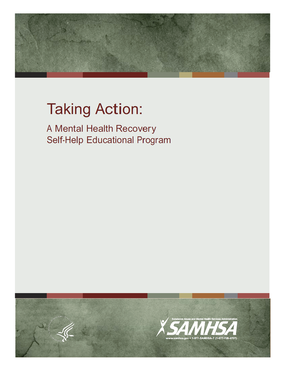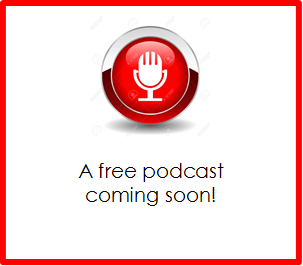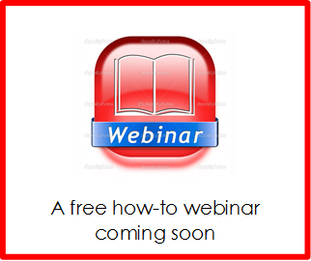What is the program?Taking Action is a self-care and recovery education program developed in 2014 by Dr. Mary Ellen Copeland. It is designed to lead people through the process of discovering what they need, want, and can do to support their own recovery. It teaches self-help concepts, skills, and strategies useful for adults with mental health issues or those with both mental health and substance use issues. Various research studies described in the program manual confirm the effectiveness of this kind of approach to mental health recovery, addiction recovery, and wellness.
Taking Action includes 24 adaptable mental health recovery sessions that are designed to guide people through their recovery in a small group learning format. Many of the sessions can be used individually, and there are recommendations for certain sessions that can be grouped together for a shorter series or mini-courses. Information about training available to teach Taking Action is available from the Copeland Center for Wellness and Recovery. |
Who can use it? |
Taking Action is designed to be used by state, county, and local behavioral health delivery systems; for-profit and not-for-profit organizations; volunteer groups; support groups; peer support groups; and peer-run programs. Sponsors and program administrators can include peer support groups and programs; mental health and alcohol and drug treatment agencies; women's organizations; community groups; hospitals; institutions; mental health court and drug court programs; prisons; and jails.
|
How does it work? |
Participants first learn about a series of key concepts essential to managing their lives such as hope, self-esteem, and empowerment. Next they learn about and practice using skills and strategies to support their ongoing recovery. They create detailed plans for prevention and self-management of their lives, including advance directives and post-crisis planning. Finally, they learn about wellness activities that can support the kinds of lives they want to lead. The following topics are covered.
|
What resources are needed? |
As described in the manual, the process for adopting Taking Action requires the following.
|
What experience is needed? |
Taking Action facilitators can be anyone willing to study the curriculum carefully and work cooperatively with a recovery committee, other facilitators, and the participants. As detailed in the manual, peers are often the best facilitators because they have lived experience of mental health and substance use difficulties. Training and certification to teach a new version of Taking Action called Taking Action for Whole Health and Well-Being is available from the Copeland Center.
Helpful preparation also includes:
|



